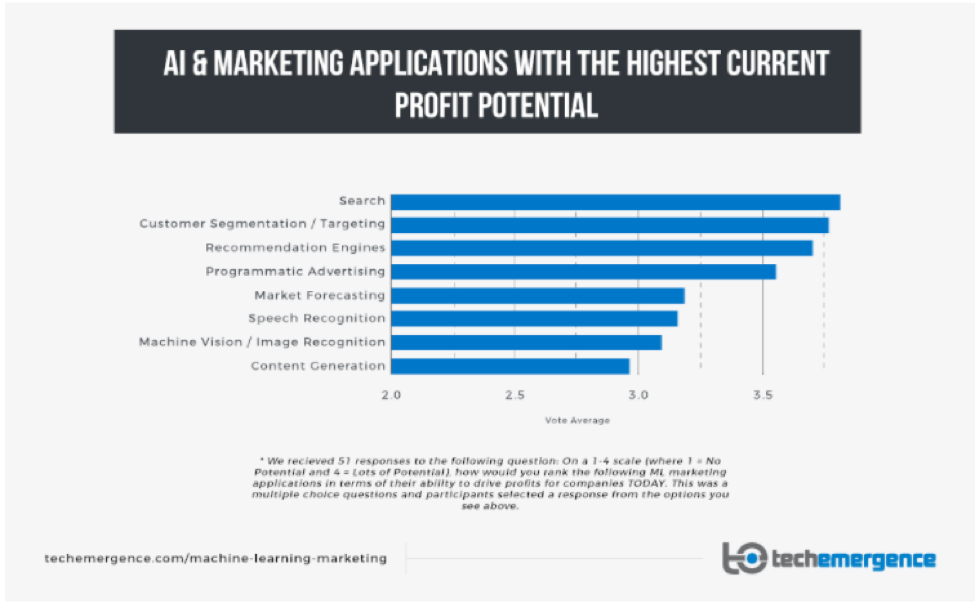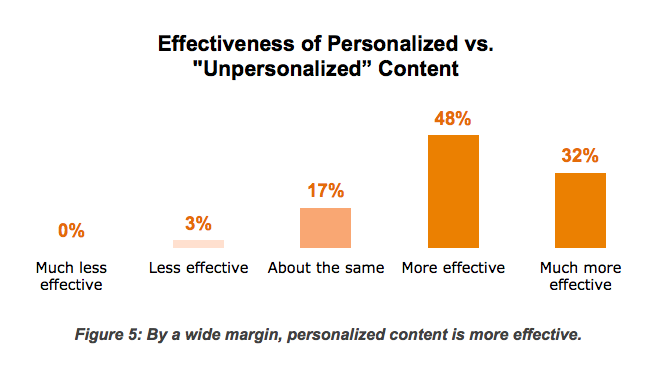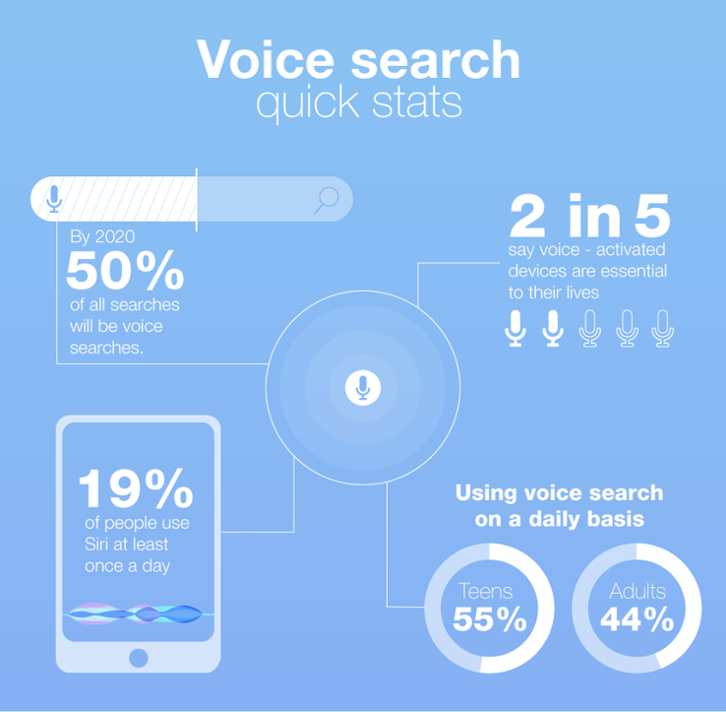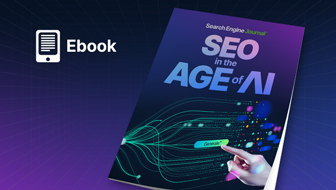This is a sponsored post written by Atomic Reach. The opinions expressed in this article are the sponsor’s own.
Artificial intelligence (AI) is one of the biggest trends in digital marketing today.
A decade ago, AI was associated with robots, machinery, and complex sciences. It felt abstract and somewhat alien. It was a term that would more likely be associated with sci-fi movies, and a distant future.
Fast forward 10 years and AI has become a more familiar idea.
From using a self-check-out line at the grocery store to depending on item recommendations from Amazon, AI has evolved to become a staple in our everyday lives.
Today nowhere is this truer than digital marketing and SEO.
The Impact of AI on SEO
AI – specifically machine learning – has become a crucial component in how search engines rank pages. This means it’s important to understand AI when optimizing for search.
As search engines have become better at identifying keyword stuffing, irrelevant backlinks, and quality content for users, marketers have had to use AI to meet the requirements of search engines.
However, while playing by the SEO rules is necessary, using AI for SEO success not only gives you a greater opportunity to enhance your page rankings, but it also allows you to develop more cohesive strategies and better content.
So, why else do you need AI for SEO success in 2019 and beyond?
Read on for our takeaways to understand why AI is a worthwhile investment for your SEO strategies.
AI’s Impact on Content Strategy
AI can have a remarkable impact on your overall content marketing strategy.
The technology creates more opportunities to reach audiences, and it requires you to think of how to string together these opportunities into an effective strategy.
Also, many times, when it comes to creating cohesive content strategies that can lead to SEO wins, the solutions lie in the data.
For many companies, using AI to collect valuable data and customer insights can lead to overall SEO success.
One company that expertly employed this approach was Kia Motors.
The car company partnered with Influential, an influencer marketplace that uses AI to suggest relevant influencers to companies.
Through the use of audience demographic data, Influential can match brands with influencers that can help them reach their target audience groups.
In 2016, Kia joined forces with Influential for its 2016 Super Bowl commercial. The company connected Kia with influencers that posted branded content to attract relevant consumer groups.
The move helped Kia get out the word about their new Kia Optima model through the #AddPizzazz campaign.
Through the insights Kia received through Influential’s data gathering, the company was able to create an effective content strategy with the help of relevant influencers.
Takeaway: When it comes to collecting the right insights, AI can help you find the data you need to create a strategy around the best channels for your messaging.
AI & the World of Hyperpersonalization
Nothing captivates a customer more than knowing that a brand put thought into personalizing their messaging.
Today’s consumers want to feel as if companies care enough to produce content that zeros in on their individual needs and concerns.
So, personalization is crucial not only for SEO but also for customer success.
Data shows that 79 percent of organizations that exceeded revenue goals have a documented personalization strategy.
Also, smart personalization engines used to recognize customer intent will enable digital businesses to increase their profits by up to 15 percent.
In short, personalization is becoming crucial to customer success.
One of the best ways to add personalization to your SEO and content marketing strategy is to implement AI and automation-based marketing methods.
Starbucks is one company that has truly capitalized on this trend. Through loyalty cards and mobile app data, Starbucks can collect customer data to provide personalized menu recommendations on smartphones as customers approach stores.
The company uses over 90 million transactions per week to inform their decisions regarding product recommendations, the locations of new stores, and new products that they should offer to customers.
Another example, Alibaba, the online marketplace giant, uses customer data to make product recommendations and create attractive digital-storefronts.
Consumers want companies to pay attention to what they do online, and add convenience to the online shopping process. AI allows you to create personalized dynamic experiences that appeal to these individuals.
Specifically, regarding content, AI can allow you to provide:
- Special landing pages.
- Dynamic content.
- Unique user experiences based on consumer data and behaviors.
These three things that can also lead to SEO success.
Takeaway: Personalization is continuing to take center stage. Search engines are recognizing this and are rewarding those who figure it out.
Search Engines & the Role of Machine Learning
One of the most crucial components of SEO is the role of search engines.
Over the years, search engines have become smarter and more influential in the process of page rankings.
SEO specialists have had to meet the requirements of relevancy by using keyword, acquiring links, metadata optimization, and frequently adding website content.
However, SEO is moving beyond these basic – yet necessary – components of page rankings.
The leader in the search engine pack, Google, is always improving their search algorithms to adjust to how consumers are searching.
For example, by 2020, it is estimated that 50 percent of searches will be voice-based. Google has understood the rise of voice search and has outfitted the Google Assistant to better understand natural conversation.
Also, over the past four to five years, Google has become more adept at adding more context to their engine, so that they can successfully pre-empt search inquiries. The same is also true for Google maps location searches.
Algorithms have also become more adept at offering up images in search as Google images see 1 billion visitors in daily page views.
In many ways, search engines like Google are taking more advantage of machine learning and AI to provide sharper results. They are offering a variety of channels for consumers to search for what they need.
To successfully satisfy algorithms and bots, marketers have to employ the same tools and tactics as search engines, namely AI.
Many tools (e.g., Yoast, Moz) can help you capitalize on keyword usage, optimize sentence formation, better organize content, and even monitor the maneuverability of a page to be sure your page is meeting basic optimizations.
These tools can also remind you to use images, and even organize your content in a way that can appeal to audio search.
Takeaway: Search engines are becoming smarter, and they are getting a better feel for what customers are looking for. Using tools that help you satisfy consumer needs within your content is necessary.
The Emergence of Smarter Content Tools
The evolution of the combination of SEO and AI has required an emergence of more intelligent content tools.
Many of today’s content tools use AI technology to help marketers improve SEO performance.
For example, instead of having to consistently check social media to see if and when your company is mentioned, tools like BuzzSumo and HubSpot can automatically notify you of a company reference.
Tools like Atomic Reach allow you to see the content that is working through the tracking of analytics, while also allowing you to create a more comprehensive strategy around AI and machine learning.
Artificial intelligence is now a substantial component of digital marketing.
From data collection to content writing and everything in between, AI is becoming necessary for SEO and content strategies.
As a result, technology companies have realized this fact and have created a variety of tools to help you better reach audiences.
Takeaway: As Google’s requirements for page rankings become more advanced and sophisticated, many tech companies are rising to the challenge to create tools to address them.
What the Future Holds
Search engines will continue to evolve. As consumer tastes change, and customers begin to depend even more on the power of search, search engines will have to become more adaptable and adept at meeting consumer needs.
As a result, the expectations for marketers, writers, and content strategists will continue to rise. You can no longer fill a blog post with keywords that do not adhere to a well-thought-out strategy.
Search engines are using AI to better match consumer needs. This means marketers should look at the power of AI to meet these requirements.
The technical nature of AI makes it a prime candidate for usage in the world of SEO.
Fortunately, many of the challenges that came with trying to predict how content will perform in search can be taken care of with the use of AI-based tools.
From using the right keywords to triggering emails, and everything in between, AI’s influence on SEO causes marketers to think about the bigger picture, and how all components of digital marketing fit together.
At this point, email, PPC, blogging, data tracking, and social media marketing can be seen through the SEO lens.
As a result, comprehensive strategies involving automation, machine learning, and AI can be employed to ensure that each component of digital marketing helps to improve page rankings.
Image Credits
Featured Image: Image by Atomic Reach. Used with permission.
In-Post Photos: Images by Atomic Reach. Used with permission.










